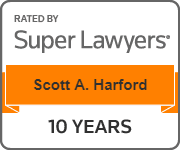
We are pleased to announce our recent resolution of a claim on behalf of a female worker harmed by a defective freight elevator located in large, commercial building in Manhattan. Scott A. Harford was able to settle the matter before even filing a lawsuit against the owner and property manager of the building.
Our client was working on a third-parties’ corporate premises within a large retail building at the time of the incident. The injury occurred when she attempted to use a freight elevator that malfunctioned several times with her inside. After consulting with the building’s doorman about her concern over the faulty conditions of the elevator, she attempted one last trip. It was during this ride that the door suddenly and inexplicitly slammed into the top of her head as she was trying the exit the elevator. Our client suffered severe injuries to the head and cervical regions of her back. She required immediate hospitalization, long-term medical care, in addition to months of physical therapy for rehabilitation.
A legal doctrine known as “res ipsa loquitur” was used to support our theory of liability against the building. This is a Latin phrase, which translated to English means “the thing speaks for itself.” It is a mechanism for proving a particular instrumentality caused an injury without having to expend the usual vast sums of money typically required in a litigation to prove a defect. Here, if a claimant can show the following three elements, this mechanism can be used to circumvent the rigorous proofs required in these types of cases:
(i) the injury-causing device was in the exclusive control of the defendant;
(ii) the accident is not the type which does not typically occur without negligence; and
(iii) the claimant is without fault.
In this scenario, we argued that the building was in exclusive control of the elevator, and that our client certainly had no control over its function and capabilities. Second, freight elevator doors crashing into someone’s head is not the type of incident that occurs without someone’s fault. Freight elevators should never simply close and slam into a passenger’s head. And, finally, our client was not at fault for simply being at the wrong place at the wrong time.
By properly arguing and utilizing this legal doctrine, we obtained an extraordinarily successful settlement at a minimal cost to our client’s absolute satisfaction.
If you or someone you know has been injured in a commercial building with similar defects and dangerous conditions, please call us today at (212) 390-8983 for a free consultation. We are to help.






